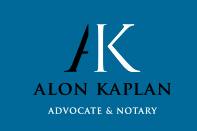
To successfully set up a private trust company, focus on regulatory compliance, governance, and financial management. Ascertain adherence to state-specific compliance requirements, including licensing and AML controls. Develop a robust governance framework with balanced board composition to guarantee accountability. Align initial capitalization strategies with state mandates, maintaining financial flexibility and transparency. Engaging expert consultation and leveraging educational resources can refine understanding and support informed decision-making. Explore further to master these essential practices.
Key Takeaways
- Establish a robust governance structure with balanced board composition and independent oversight for compliance and accountability.
- Ensure adherence to state-specific regulatory compliance, including licensing exemptions and AML/CFT controls.
- Align initial capitalization with state requirements to support financial flexibility and ongoing operational expenses.
- Tailor operational structures to family needs, focusing on generational wealth planning and customization of services.
- Engage legal and financial experts for refined governance, fiduciary oversight, and continuous adaptation to regulatory changes.
Regulatory Compliance and Licensing Requirements
When setting up a private trust company, understanding the regulatory compliance and licensing requirements is essential, as these vary greatly by state and can impact where your company can be formed and operated. Some states offer licensing exemptions, allowing you to operate without a full license under specific conditions. This could entail administration by a licensed fiduciary and adherence to anti-money laundering (AML) and counter-financing of terrorism (CFT) controls. The application process typically involves submitting detailed organizational documents, such as corporate bylaws, and providing biographical information for directors and officers. Application fees range from $3,000 to $10,000 depending on the state. Additionally, certain states like Texas, New Hampshire, and Tennessee provide statutory exemptions that might simplify your setup process greatly. Trusts in prime jurisdictions often involve experts who understand the nuances of trust law and regulatory compliance in various locations. It is important to note that private trust companies are designed to provide generational wealth planning benefits, offering tailored solutions for ultra-high net worth families.
Governance and Fiduciary Oversight
Establishing a robust governance structure in a private trust company is vital, as it guarantees accountability and aligns the company’s operations with both regulatory requirements and the family’s objectives. To achieve this, focus on a balanced board composition, including family members and independent individuals, promoting diverse perspectives. Independent oversight is essential for maintaining impartiality and monitoring compliance with governance documents. A Private Trust Company (PTC) serves as a corporate trustee for trusts, allowing families to maintain control over their trust structures while ensuring personalized management. Here are three key practices to enhance governance and fiduciary oversight:
- Internal Committees: Form committees like Distribution and Amendment, assigning clear roles and responsibilities to improve decision-making. Consulting with legal experts who specialize in Trusts can further refine committee roles and enhance their effectiveness.
- Regular Audits: Conduct audits frequently to verify fiduciary duties are met, reporting findings to the board.
- Transparent Communication: Maintain open communication lines between governance levels and family members to promote alignment with family values and goals.
Capitalization and Financial Management

To effectively establish and manage a private trust company, understanding the nuances of capitalization and financial management is vital. You must guarantee the initial capital contribution strategies align with state requirements, which vary from $200,000 in states like South Dakota to $500,000 elsewhere. This capital foundation supports financial flexibility and helps manage ongoing expenses such as regulatory compliance and operational costs. Implementing robust risk management systems is essential to identify potential pitfalls and guarantee compliance with state regulations. Regular audits and state examinations will be necessary, requiring precise financial record-keeping and governance documents. Engaging financial advisors can enhance strategic financial planning, aligning the company’s financial strategies with family goals while maintaining transparency and regulatory adherence. For a well-rounded operation, it is crucial to consider whether to establish a public/retail trust company or a private family trust company (PFTC), as this choice impacts the regulatory requirements and operational flexibility.
Frequently Asked Questions
How to Select the Best Location for a Private Trust Company?
When selecting the best location for a private trust company, consider tax implications and the regulatory environment.
Opt for jurisdictions with favorable tax laws and minimal estate or inheritance taxes to protect trust assets.
Guarantee the location has a stable regulatory framework with strong anti-money laundering and Know Your Client requirements.
Access to experienced trustee services, legal and financial expertise, and a supportive infrastructure are essential for efficient operations and compliance.
What Are the Key Considerations in Drafting the Operating Agreement?
When drafting the operating agreement, guarantee you establish a robust governance structure that defines decision-making authority and accountability.
Clearly outline membership criteria, specifying who can join and the requirements they must meet.
Detail how profits and losses will be distributed, and set clear rules for financial management.
Incorporate provisions for risk management and guarantee all compliance with state regulations is addressed, maintaining the company’s legal standing.
How Can a PTC Ensure Alignment With Family Values?
“Actions speak louder than words.”
To guarantee a PTC aligns with family values, conduct a thorough values assessment, engaging family members to identify shared principles.
Establish governance structures reflecting these values, appointing board members who embody the family’s mission.
Regularly review and update the framework to adapt to evolving priorities.
Promote open dialogue among family members, fostering a cohesive approach to decision-making that consistently honors the family’s traditions and aspirations.
What Role Do Family Members Play in the Ptc’S Strategic Planning?
In the PTC’s strategic planning, your family involvement is essential. You help define strategic goals, making certain they align with family values and long-term objectives.
By participating in board meetings and decision-making processes, you have a direct impact on shaping the PTC’s direction. Your role includes overseeing trustee selection, maintaining confidentiality, and contributing to succession planning.
This involvement guarantees the PTC remains responsive to family needs while preserving the family’s legacy.
How to Evaluate if a PTC Is Suitable Compared to Other Estate Planning Tools?
Evaluating a PTC’s suitability over other estate planning tools can feel like deciphering a financial labyrinth.
Start with a cost analysis to compare initial and ongoing expenses. Conduct a risk assessment, focusing on how a PTC might mitigate liabilities and provide asset protection.
Consider the flexibility of asset management and enhanced control over decisions. Weigh these against privacy concerns and tax implications to determine if a PTC aligns with your family’s goals.
Conclusion
By adhering to regulatory compliance, ensuring robust governance, and maintaining sound financial management, you can successfully set up a private trust company. Importantly, according to a recent industry report, over 70% of private trust companies that prioritize strong governance practices see enhanced fiduciary performance. This statistic underscores the importance of a well-structured approach. As you commence on this journey, focus on these best practices to navigate the complexities of trust company operations effectively.

